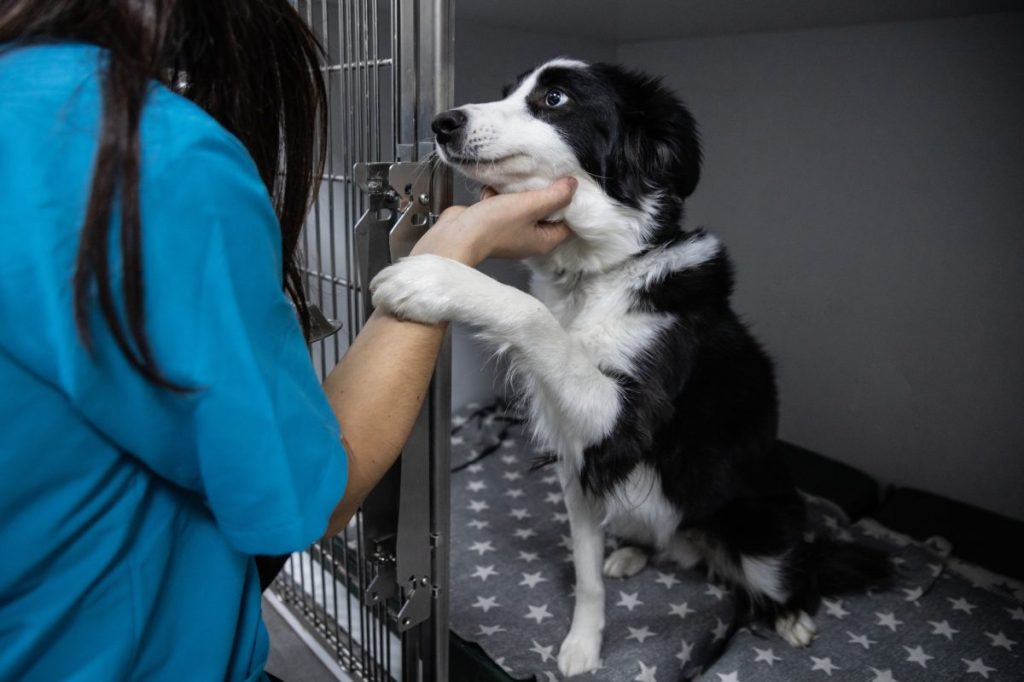Scientists involved in aging research are expressing their dismay about the potential termination of a significant study in the field — the Dog Aging Project. This project has been examining both the mental and physical aspects of aging in approximately 50,000 dogs, as well as running a clinical trial for a drug that might enhance the lifespan of the animals. However, as reported by Science, the project’s organizers are worried about the likelihood of losing funding this year from the National Institute on Aging (NIA). The NIA has been providing at least 90% of the project’s yearly budget, currently around $7 million.
“It is a big loss if this project in dogs does not continue,” said João Pedro de Magalhães, a gerontologist at the University of Birmingham. He asserts that large, long-living animal models offer important information about human aging. Biogerontologist Steve Austad from the University of Alabama at Birmingham reinforces this by saying that this study could have been the most enlightening study of aging outside of humans. Neither Magalhães nor Austad are part of the research. However, Austad’s 2-year-old Dachshund is a participant in the project.
Organizers fight to sustain dog aging study
As per The New York Times, the project’s organizers are concerned about the continuation of its funding, following mediocre scores on last year’s late grant renewal application. They are currently working on gathering funds from various sources. Moreover, they have initiated a petition to urge the director of the National Institutes of Health to restore the funding. Daniel Promislow, the project’s co-director and an evolutionary geneticist at the University of Washington (UW), stated, “I’m doing everything possible to keep [the project] going in its current form.”
While labs focusing on longevity research mainly use rodents and other small creatures, dogs serve as the most influential models in studying aging biology, according to Matt Kaeberlein. This is because decades of veterinary research have provided scientists with greater knowledge of the health changes dogs undergo over time compared to rodents. Additionally, unlike lab rats, dogs live in the same conditions as humans and often suffer from similar age-related diseases, including heart disease and dementia. “It’s remarkable how much dog aging is teaching us about human aging,” states biochemist and geneticist Laura Niedernhofer from the University of Minnesota, who is not part of the project.
That said, various researchers and companies have entered this field of research. The Vaika Project tracked the health of 103 retired sled dogs over five years until its termination. The Golden Retriever Lifetime Study is currently tracking over 3,000 Golden Retrievers. Numerous companies are in the process of creating therapies to delay aging in dogs. Loyal — a San Francisco-based company — has even gained preliminary approval from the Food and Drug Administration for its proprietary drug, though the specifics of this treatment have not been disclosed.
How the Dog Aging Project began

Initiated in 2014, The Dog Aging Project didn’t actively begin its research until 2018, following a nearly $29 million 5-year grant from the NIA. Dog parents participate by completing yearly health surveys about their pets to monitor the progression of their physical decline. In addition, certain dogs undergo comprehensive assessments which include the provision of DNA and other samples, as well as cognition and mobility tests. As of now, scientists have mapped the genomes of 1,000 dogs and gathered 14,000 tissue samples.
Published research has provided insights into canine cognitive deterioration, their predisposition to tumors, the impact of their feeding patterns on their health, and more. Moreover, an ongoing clinical trial aims to determine whether the drug rapamycin — known for extending the lifespan of rodents — can do the same for dogs. “The project is really just beginning to hit its stride,” said its chief veterinary officer, Kate Creevy of Texas A&M University.
Efforts to overcome funding setbacks and plan for the future
Despite the challenges from the COVID-19 pandemic, the project’s organizers believed they had made significant progress to secure the renewal of their grant from NIA. However, the reviewer’s score was less positive than expected, almost guaranteeing it would fall below the funding cutoff, according to Promislow. The NIA hasn’t yet revealed the grant recipients for this round, but he says, “It’s very unlikely that NIA will be able to fund us this cycle.” An NIA spokesperson confirmed that the agency avoids commenting on grant discussions.
Cornell University’s dog geneticist, Heather Huson, who has no affiliation with the study, emphasizes the need for long-term backing in such projects. “It takes you 5 years to start accumulating data,” said Huson. Having participated in the Vaika Project, which closed down last year, she has a keen understanding of the challenges associated with such initiatives. This project was severely affected by the conflict between Russia and Ukraine, as its major funding was sourced from Russian philanthropies.
The leaders of the Dog Aging Project are currently seeking alternative funding sources to maintain the project for the coming year in a bid to prevent its closure. They intend to apply for NIA funding again in 2025. In addition, Promislow, along with other organizers, is establishing a charitable foundation. They aspire to raise between $40 million and $50 million for an endowment to secure ongoing financial support.
Huson cautions that the Vaika Project also tried to convince donors to fund dog aging research but was unsuccessful. Nevertheless, she and others are hopeful that the Dog Aging Project — which has unexpectedly become an underdog — can be salvaged.









